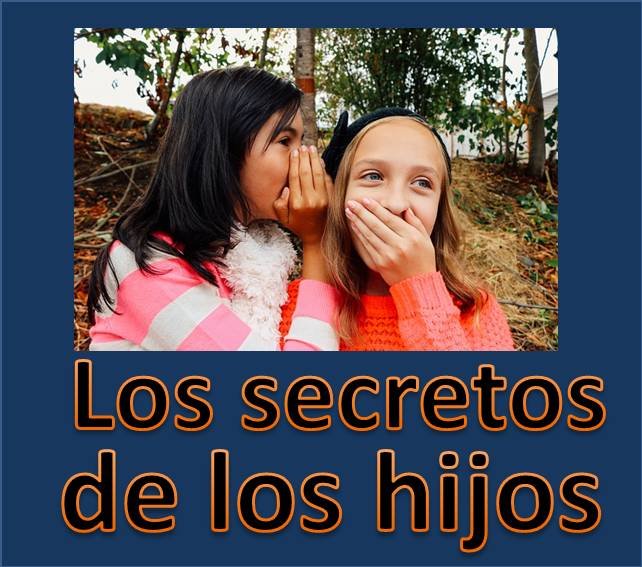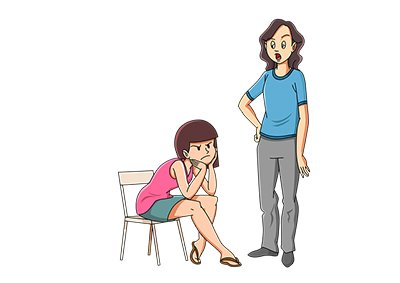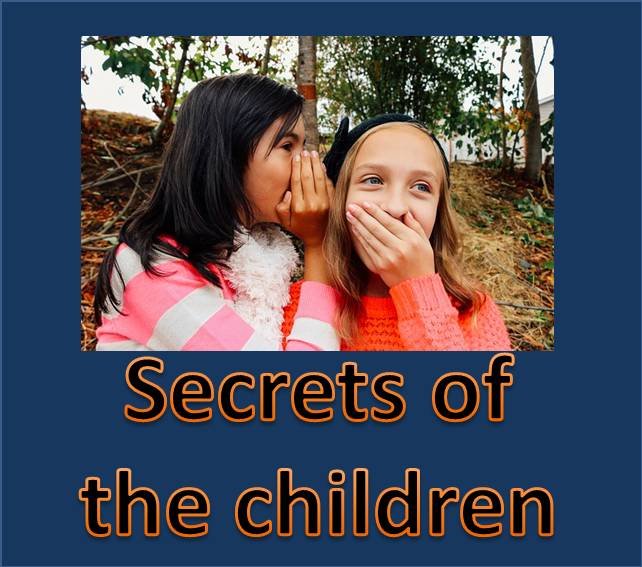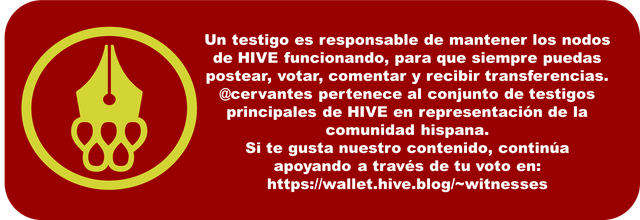Los secretos de los hijos//The secrets of children [ESP-ING]


Marietta ve a su hija de catorce años chateando constantemente por el teléfono. El asunto la tiene preocupada porque cada vez que le pregunta con quien tanto habla ella le responde con el nombre de cualquier compañera del colegio. Cuando le revisa el teléfono no ve conversaciones recientes o simplemente se encuentra con saludos. Papá y mamá están divorciados y en un momento determinado que la niña sale con su papá, Marietta aprovecha para hacer una revisión exhaustiva al teléfono y se encuentra con un chat de una “muchacha desconocida” y que su hija utiliza un nombre falso. Las conversaciones sobrepasan ciertos límites, aunque no se puedan catalogar como grave pero, la situación en sí misma es preocupante.
Cuando papá e hija llegan, Marietta le plantea la situación a papá, quien iracundo le recrimina que no tiene derecho a revisarle el teléfono a la hija, que eso es algo íntimo e insta a la niña que le coloque una clave que bloquee el acceso al teléfono.
La verdad es que no se qué tan común pueda ser el caso, lo cierto es que hay varias reglas que se rompen y que de alguna manera van fijando pautas para acciones futuras que pueden deteriorar la confianza, el respeto, y la armonía de las relaciones padres-hijos. Echémosle una mirada al asunto:
El derecho a la intimidad
A medida que el niño/niña va creciendo va tomando conciencia de los espacios de intimidad, con respecto a los demás y a sí mismo. Es hacia los seis años de edad VER que el niño comienza a comprender que no todo lo quiere compartir con mamá o con papá pero sí con un hermano o con un amigo. Este proceso es importante porque fortalece lazos y desarrolla valores como la confianza, el respeto y la intimidad del otro.
Sin embargo, el niño debe aprender a distinguir qué “secretos se pueden guardar y cuáles no” tal vez desde la perspectiva de aquello que no nos hace daño, no nos causa dolor lo podemos guardar y todo lo que produce malestar, tristeza o dolor hay que decirlo…
Ahora bien, cuando nosotros como adultos sabemos que nuestros niños tiene sus secreticos, dejémoslos tranquilos, efectivamente tienen derecho a su intimidad. El adolescente es aún más susceptible y celoso con sus espacios de intimidad, como padres debemos respetarlos, lo que sí es importantísimo es estar, con las antenas activas para percibir las señales de alertas.
¿Cuáles son las señales de alerta?

Básicamente tenemos dos grandes indicadores de que la normalidad con nuestros hijos ésta cambiando, que algo sucede, aún cuando no podamos concretar el qué: en primer lugar los cambios de actitud. En ocasiones estas modificaciones pueden ser muy sutiles: Si es un niño o joven tímido se vuelve más retraído, menos participativo, si es de buen carácter y de pronto de vuelve “rebelde”, contestón, se molesta fácilmente e incluso muestra apatía hay que estar atentos.
El segundo indicador va referido al comportamiento: pierde interés por las actividades que normalmente realiza, baja el rendimiento escolar, descuida su presentación física, no cumple con las responsabilidades adquiridas y asignadas son indicios de que algo está sucediendo, no nos pongamos vendas y justifiquemos con escusas como: esa es la edad, todos se ponen así, porque puede no ser cierto.
Ahora bien, retomado el caso de Marieta y su bebesota, es evidente que la niña-adolescente se está metiendo en una situación que implica peligro, algo está pasando y no está bien —¿Podemos nosotros adultos-padres, en nombre del respeto a la intimidad obviar lo que sucede?

Nuestra principal responsabilidad, obligación, compromiso es proteger a nuestros hijos, allí no hay intimidad que valga, tal vez lo que hay que tener presente es el cómo afrontarlo porque de ello depende, en gran medida, el bienestar de la relación con el hijo. Si somos invasivos, agresivos y queremos finiquitar situación teniendo la última palabra e imponiendo, lo más probable es que la comunicación que había se resquebraje dando paso a mayor secretismo y desconfianza.

Abordar la situación con franqueza y ecuanimidad puede ser lo más acertado, hacerle ver a la niña, en este caso, que establecer relaciones con desconocidos genera desconfianza y peligro, que el hecho de utilizar un nombre que no es el de ella, la hace estar consciente de que algo no va bien y así como ella miente la otra persona también lo puede estar haciendo, buscar de profundizar en el por qué lo hace, quizás ni ella misma tenga una respuesta para eso, lo relevante en ese momento es fijar pautas, límites, acuerdos y que estos sean respetados, dejando claro que las libertades y confianza se ganan.
Otro aspecto relevante es el acuerdo entre los padres, tener unos criterios mínimos comunes es necesario, ya que ello le permite al niño/adolescente saber que está permitido y que no, cuales son las reglas del juego y las consecuencias de sus acciones desarrollando de esta manera, entre otros aspectos, la responsabilidad consigo mismo y los demás.
In English


Marietta sees her fourteen-year-old daughter constantly chatting on the phone. She is concerned because every time she asks her who she is talking to, she answers with the name of any schoolmate. When she checks her phone she doesn't see any recent conversations or just greetings. Mom and Dad are divorced and at one point when the girl is out with her dad, Marietta takes the opportunity to do a thorough check of the phone and finds a chat from an "unknown girl" and that her daughter is using a fake name. The conversations go beyond certain limits, although they may not be classified as serious, but the situation itself is worrisome.
When father and daughter arrive, Marietta raises the situation with dad, who angrily reprimands her that he has no right to check his daughter's phone, that it is something intimate, and urges the girl to put a password to block access to the phone.
The truth is that I don't know how common the case may be, what is certain is that there are several rules that are broken and that somehow set guidelines for future actions that may deteriorate trust, respect, and the harmony of parent-child relationships. Let's take a look at the issue:
The right to privacy
As the child grows up, he/she becomes aware of the spaces of intimacy, with respect to others and to him/herself. It is around the age of six SEE that the child begins to understand that he/she does not want to share everything with mom or dad, but with a sibling or a friend. This process is important because it strengthens bonds and develops values such as trust, respect and intimacy with others.
However, the child must learn to distinguish which "secrets can be kept and which cannot" perhaps from the perspective of what does not hurt us, does not cause us pain, we can keep it and everything that causes discomfort, sadness or pain must be said...
Now, when we as adults know that our children have their secrets, let's leave them alone, indeed they have the right to their privacy. Adolescents are even more sensitive and jealous of their private spaces, as parents we must respect them, what is very important is to be with active antennae to perceive the warning signs.
What are the warning signs?

Basically we have two main indicators that normality with our children is changing, that something is happening, even if we cannot specify what it is: firstly, changes in attitude. Sometimes these changes can be very subtle: if it is a shy child or youngster, he becomes more withdrawn, less participative, if he is good-natured and suddenly becomes "rebellious", argumentative, easily annoyed and even shows apathy, we must be attentive.
The second indicator refers to behavior: he loses interest in the activities he normally performs, his school performance drops, he neglects his physical appearance, he does not fulfill his acquired and assigned responsibilities are signs that something is happening, let's not put on bandages and justify it with excuses such as: that's the age, everyone gets like that, because it may not be true.
Now, taking up the case of Marieta and her bebesota, it is evident that the child-teenager is getting into a situation that implies danger, something is happening and it is not right -can we adults-parents, in the name of respect for privacy, ignore what is happening?

Our main responsibility, obligation, commitment is to protect our children, there is no privacy that is worth, perhaps what we have to keep in mind is how to deal with it because it depends, to a large extent, the welfare of the relationship with the child. If we are invasive, aggressive and want to settle the situation by having the last word and imposing, the most probable thing is that the communication that existed will break down, giving way to greater secrecy and distrust.

Addressing the situation with frankness and equanimity may be the best approach, making the child see, in this case, that establishing relationships with strangers generates distrust and danger, and that the fact of using a name that is not hers makes her aware that something is wrong, The most important thing at that moment is to establish guidelines, limits, agreements and that these are respected, making it clear that freedoms and trust are earned.
Another relevant aspect is the agreement between parents, having minimum common criteria is necessary, as this allows the child/adolescent to know what is allowed and what is not, what the rules of the game are and the consequences of his/her actions, thus developing, among other aspects, responsibility towards him/herself and others.
Translated with www.DeepL.com/Translator (free version)
Fuente de imágenes: Portada - 2 - 3 - 4 - 5




MIS REDES SOCIALES






Te invito a apoyar este proyecto como witnes y a formar parte de esta gran comunidad uniéndote a su Discord en el siguiente enlace:
Discord de la comunidad Cervantes




https://twitter.com/damaryspacheco5/status/1456951281130557444
The rewards earned on this comment will go directly to the person sharing the post on Twitter as long as they are registered with @poshtoken. Sign up at https://hiveposh.com.
Interesante planteamiento. Te felicito por comentarlo
Hola @yllentv es un tema delicado y muy subjetivo al plantearlo porque cada uno tiene su manera y en eso de la crianza no hay receta. 😊
Ciertamente. Cada familia tiene su manera de actuar. Es interesante que compartas tu punto de vista.